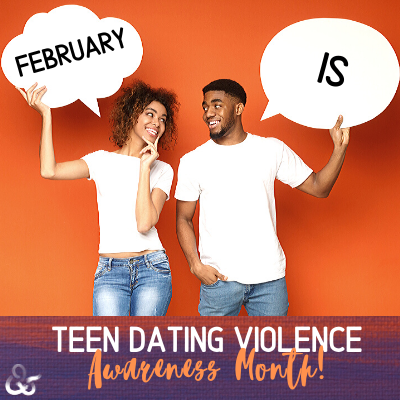‘Domestic abuse.’ Think about those words. Now, close your eyes for a moment. Picture the first image that came to mind. Did you see a fist? Or perhaps a bruised face? Maybe an inebriated, pot-bellied man in a dirty sleeveless shirt grabbing the arm of his wife as she struggles to escape his grasp? I did.

Even after working at WC&S for a few years, and knowing that ‘domestic abuse’ personified takes many different forms and can happen in any relationship, I still pictured the stereotypical, made-for-tv scene being played out by two married adults in a relationship. If you did, too, you’re not alone. Teenagers are not the first thought on our minds when we think of domestic abuse. But the statistics tell us they should be.
- An alarming 1 in 3 teenagers in the United States will experience physical, sexual, verbal, or emotional abuse from the person they’re dating.
- Fifty-seven percent of teens know someone who has been in a physically, sexually, or verbally abusive dating relationship.
- Only 33% of teenagers who were in an abusive relationship ever told anyone about it.
- Women between the ages of 18-24 are most commonly abused by an intimate partner; it does not end at the teenage years.
- Abuse happens in heterosexual and same sex relationships.
Teen Dating Violence Signs
But here’s a big one—81% of parents don’t believe teen dating violence is an issue or admit they don’t know if it is. So, if you’re a parent, do you think you could recognize the signs if your teen was in an abusive relationship? Eighty-two percent of parents feel confident that they would recognize the signs, yet 58% of parents couldn’t identify all of the warning signs correctly. Get to know the signs so you can recognize when they appear. Your teen may be in an abusive relationship if their partner:
- is controlling
- is jealous
- checks your teen’s phone
- makes your teen feel fearful
- has an explosive temper and breaks and/or strikes things
- demands details about how your teen is spending their time
- is condescending and belittles your teen’s beliefs and values
- tries to restrict your teen from having contact with friends and family
- refuses to let your teen end the relationship by threatening self-harm or harm to your teen
- is pressuring your teen to change their appearance, hairstyle, clothing, etc.
And one more to notice–your teen has unexplained injuries (or the explanations don’t make sense) and casually mentions their partner’s violent behavior but laughs it off as a joke. But, it’s not funny and they’re not joking. Because teenagers experience dating violence.
How Can You Help?
February is Teen Dating Violence Awareness Month. So, in addition to getting to know some of the signs, make your commitment to learn about teen dating violence by sharing it proudly and publicly. Wear Orange for Love Day was February 11th, but if you missed wearing orange that day, do it any day this month! Use the hashtags #TDVAM20 and #Orange4Love to show your citrus-colored clothing on social media and interact with others who are learning, too.
If you want to talk to someone, we’re available on our 24-Hour Hotline at (412) 687-8005. Also, not only can teens call, but parents, guardians, or anyone who is seeking support or help for the teen can call – guidance counselors, teachers, family friends, etc. Our Hotline Advocates will provide emotional support, safety planning, resources, and more. We’re all in this together; our teens are depending on it.
Sites cited: rainn.org, ncdsv.org, wcscanhelp.org, firstthings.org, thehotline.org



